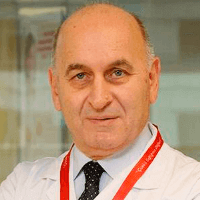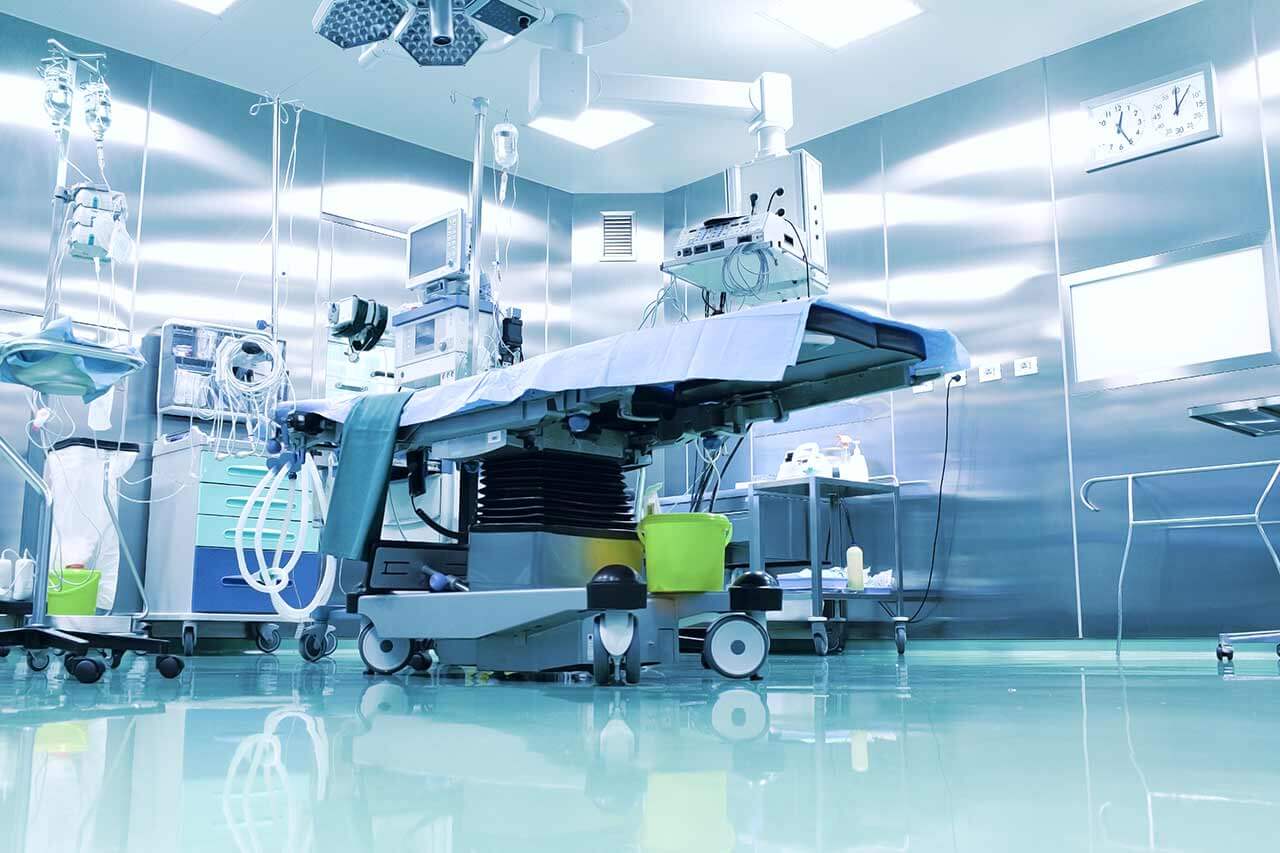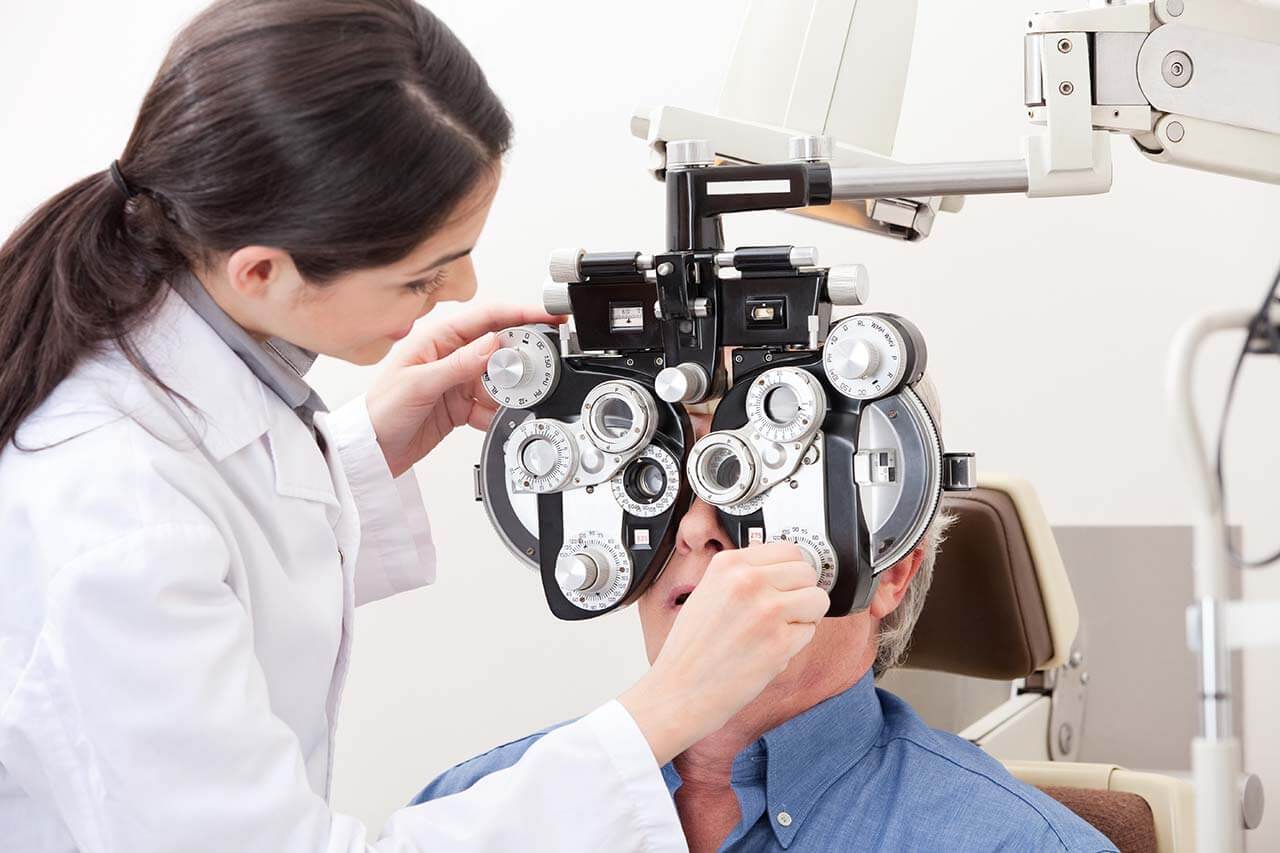
The program includes:
- Initial presentation in the clinic
- clinical history taking
- review of medical records
- physical examination
- laboratory tests:
- complete blood count
- general urine analysis
- biochemical analysis of blood
- inflammation indicators (CRP, ESR)
- indicators blood coagulation
- neurological examination
- CT/MRI scan
- neuropsychological tests (on indications):
- ENMG (electroneuromyography)
- EEG (electroencephalography)
- SEPs (somatosensory evoked potentials)
- VEPs (visually evoked potentials)
- BAEP tests (brainstem auditory evoked potential)
- preoperative care
- removal of brain meningioma a with intraoperative neuronavigation
- histologically and immunohistochemically
examination of the remote tissues - blood transfusions (if needed)
- 1-day intensive care unit stay
- postoperative MRI control
- symptomatic treatment
- control examinations
- the cost of essential medicines and materials
- nursing services
- full hospital accommodation
- developing of further guidance by specialists
in oncology and radiotherapy
Required documents
- Medical records
- MRI/CT scan (if available)
Service
You may also book:
 BookingHealth Price from:
BookingHealth Price from:
About the department
The Department of Adult and Pediatric Neurosurgery at the Memorial Sisli Hospital Istanbul offers the full range of surgical treatment for diseases of the brain, spinal cord and peripheral nerves. A neurosurgical intervention is preceded by the diagnostics using state-of-the-art equipment, including CT and MRI scans, angiography and other diagnostic tests. Surgical interventions are performed in operating rooms equipped with the latest technology. The neurosurgeons successfully use advanced systems of neuronavigation, neuromonitoring, CUSA ultrasound surgery device, O-Arm intraoperative CT, radiosurgical systems for stereotactic interventions and many other innovations. This allows the doctors to perform intervention with maximum safety and to exclude damage to vital structures of the brain and spinal cord. The department employs specialists with excellent qualifications and vast clinical experience, which they have gained in the best medical facilities in Turkey, Europe and the United States. The Chief Physician of the department Prof. Dr. med. Nezih Ozkan.
One of the most frequent pathologies in the department's clinical practice are brain and spinal cord tumors. Both adults and children can undergo treatment of malignancies of the nervous system here. The treatment regimen for each patient is developed individually, with the involvement of specialists from related disciplines – oncologists, radiologists, neuroradiologists, etc. As a rule, the main stages of treatment are surgery, chemotherapy and/or radiation therapy. In addition, in most cases, the neurosurgeon carries out preliminary planning of the operation using data from CT, MRI, PET scans and other imaging tests. Particular attention is paid to the assessment of the brain activity, vascular changes, as well as determination of the exact location of the tumor, its size, invasion into the surrounding tissues, metastases to other organs and anatomical structures. In the course of surgical treatment, the surgeons use state-of-the-art neuronavigation systems, neuromonitoring and other techniques, which allow them to perform each manipulation with pinpoint accuracy, excluding damage to vital regions of the brain and spinal cord. In addition, the department uses stereotactic radiosurgery to treat brain tumors. It is a non-surgical method of radiation therapy. The main advantage of the technique is high precision delivery of higher doses of radiation as compared to classical radiation therapy, which helps more effectively destroy the tumor without damaging the healthy surrounding tissues.
The treatment of spinal injuries and diseases is also of particular interest to the department's specialists. The department's neurosurgeons successfully perform operations to treat spinal stenosis, myelocele and congenital spinal anomalies. Spinal surgery is performed using microsurgical and endoscopic techniques, which significantly reduce the period of postoperative recovery, and also avoids severe pain after surgery. In addition, the department carries out modern interventional procedures for the treatment of chronic back pain.
A specially trained team of neurosurgeons takes care of the health of the nervous system of young patients. They have vast experience in the treatment of congenital and acquired diseases in children. The doctors most often admit children with brain and spinal cord cancers, vascular malformations of the brain, hydrocephalus and spina bifida. The treatment complies with clinical protocols and requirements of the professional societies for pediatric neurosurgery.
The department's main clinical focuses include:
- Surgical treatment of brain and spinal cord tumors
- Surgical treatment of spinal diseases
- Spinal stenosis
- Spinal injury
- Myelocele
- Surgical treatment of cerebrovascular diseases
- Cerebral aneurysms
- Arteriovenous malformations
- Carotid stenosis
- Intracerebral hemorrhage
- Cerebrovascular occlusions
- Surgical treatment of traumatic brain injuries
- Surgical treatment of functional diseases of the nervous system
- Parkinson's disease
- Spasticity
- Tremor
- Surgical treatment of diseases of the nervous system in children
- Brain and spinal cord tumors
- Cerebrovascular disorders
- Hydrocephalus
- Spina bifida
- Other surgical options
Curriculum vitae
Professional Career
- Since 2019 Work in the Department of Adult and Pediatric Neurosurgery at the Memorial Sisli Hospital Istanbul, Istanbul, Turkey.
- 2015 - 2019 Work in the Department of Neurosurgery at the Acibadem University Hospital Atakent, Istanbul, Turkey.
- 2010 - 2015 Head of the Department of Neurosurgery at the Faculty of Medicine, Abant Izzet Baysal University, Bolu, Turkey.
- 1992 - 2010 Head of the Department of Neurosurgery at the Vakif Gureba Training and Research Hospital, Istanbul, Turkey.
- 1987 - 1992 Deputy Head of the Department of Neurosurgery at the Haydarpaşa Numune Training and Research Hospital, Istanbul, Turkey.
- 1987 - 1989 Internship in the Department of Neurosurgery at the University Hospital Zurich, Zurich, Switzerland.
- 1984 - 1987 Deputy Head of the Haydarpaşa Numune Training and Research Hospital, Istanbul, Turkey.
- 1983 - 1984 Neurosurgeon, Gulhane Military Medical Academy, Ankara, Turkey.
Higher Education and Postgraduate Training
- Since 2010 Professorship in Neurosurgery.
- Since 1991 Assistant Professorship in Neurosurgery.
- 1976 - 1982 Highly specialized training in Neurosurgery, Faculty of Medicine at the Istanbul University, Istanbul, Turkey.
- 1970 - 1976 Study of Human Medicine, Ege University, Izmir, Turkey.
Additional Qualifications, Advanced Training Courses
- Participation in operations and research under the guidance of Prof. Takanori Fukushima, Institute of Neurobiology at the Pittsburgh Allegheny General Hospital, USA.
- Participation in operations and research under the guidance of Prof. Ossama Al Mefty and Prof. Gazi Yaşargül, Department of Neurosurgery at the University of Arkansas, USA.
Memberships in Professional Societies
- Permanent Member of the Turkish Academy of Neurosurgery.
- Council Member of the Faculty of Medicine of the Abant Izzet Baysal University.
- Member of the Ethics Committee of the Turkish Neurosurgical Society.
- Member of the Health Committee of the Turkish Football Federation (TFF).
Photo of the doctor: (c) Memorial Sisli Hospital
About hospital
The Memorial Sisli Hospital Istanbul is the largest and leading medical complex in Turkey, which meets the highest standards of medical care when providing the advanced diagnostics and treatment using the very latest methods. The hospital is part of the Memorial Health Group – it was the first project of this provider of medical services. The medical center opened its doors to the first patient in 2000. The hospital became the first in Turkey and the twenty-first in the world holder of the JCI (Joint Commission International) accreditation certificate. Only the best and the most reputable hospitals in the world medical arena can receive this certificate.
The hospital has 292 beds for patient hospitalization. The surgical treatment is performed in 13 high-tech operating rooms. The medical complex also has 4 intensive care units, 3 state-of-the-art laboratories, specialized centers, including the In Vitro Fertilization Center, the Transplant Center, the Center for Genetic Diseases, the Bone Marrow Transplant Center, the Robotic Surgery Center, the Cancer Center and others.
The hospital has achieved particular success and international recognition in such medical fields as ophthalmology, reproductive medicine, plastic surgery, cardiology and cardiac surgery, transplantology, genetics. The highly qualified doctors who have undergone professional training in the best hospitals in Turkey, Europe and the USA take care of the patients' health. The specialists have a tremendous clinical experience and thousands of saved lives.
It is worth noting that the medical complex has earned a strong reputation not only in Turkey, but also at the international level – the hospital holds consultations, provides diagnostics and treatment for patients from 92 countries.
Image: (c) depositphotos
Accommodation in hospital
Patients rooms
The patients of the Memorial Sisli Hospital Istanbul live in comfortable single or double rooms with all the necessary amenities. The patient rooms are made in a modern design. The standard patient room includes an automatically adjustable bed, a bedside table, a wardrobe for storing personal belongings, a telephone and a TV. Each patient room also has an ensuite bathroom with shower and toilet. The patient rooms have Wi-Fi.
Meals and Menus
The patient and the accompanying person are offered tasty and balanced three meals a day. If for some reason you do not eat all foods, you will be offered an individual menu. Please inform the medical staff about your food preferences prior to treatment.
Further details
Standard rooms include:
Accompanying person
During the inpatient program, the accompanying person can live with the patient in a patient room or a hotel of his choice. Our managers will help you choose the most suitable option.
Hotel
During an outpatient program, the patient can stay at the hotel of his choice. If desired, the patient can stay in a five-star hotel on the territory of the hospital. Our managers will help you choose the most suitable option.




